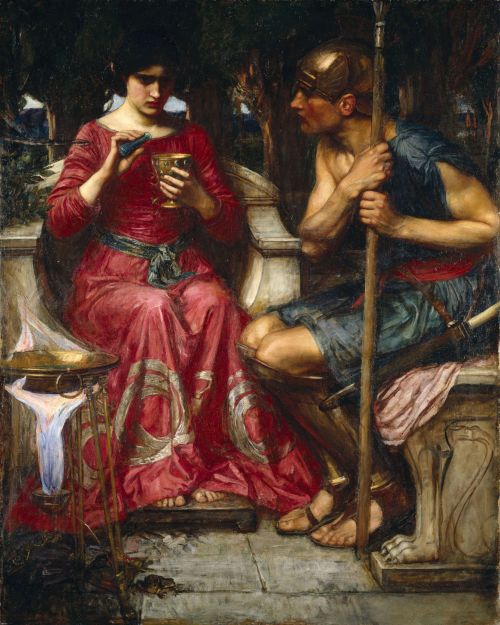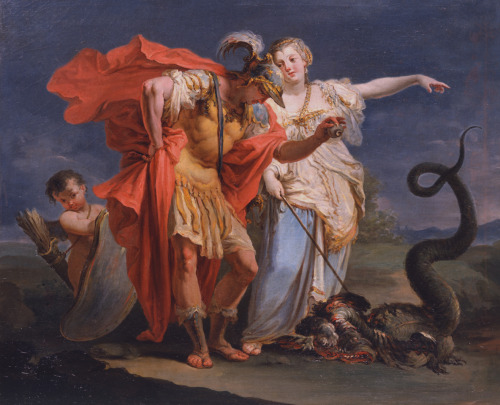#charles andre van loo
Jason and Medea
1. Jason swearing Eternal Affection to Medea by Jean-François Detroy 1742-3
2. Jason and Medea by John William Waterhouse 1907
3. Jason and Medea Charming the Sleepless Dragon by C.G. Battista
4. Jason Charming the Dragon by Salvator Rosa ca. 1665-1670
5. The Golden Fleece by Herbert James Draper 1904
6. Medea by Eugène Ferdinand Victor Delacroix 1862
7. Jason and Medea by Charles André van Loo 1759
Explanatory notes:
1. Jason cannot win the fleece without Medea’s help, so Hera and Athena persuade Aphrodite to send Eros to Medea, so she falls in love with Jason.
2. Medea is mixing the potion for Jason that will make him invincible for 24 hours, so he can complete the tasks King Aeëtes of Colchis, Medeas father, has set out if he is to win the fleece.
3 + 4 The fleece is guarded by a serpent that never sleeps, so Medea mixes a sleeping powder for him to use on the snake (in some versions she is the one who puts it to sleep).
5. On the home voyage from Colchis the Argonauts (with Medea) run into more trouble, and Medea sacrifices her brother by throwing him overboard so they can get away.
6 + 7. After the events of The Argonautica Medea and Jason have two sons. But Jason betrays Medea with another woman, and Medea takes revenge by sending the woman a cursed dress that burns her alive, and by murdering her children before finally fleeing in her dragon-pulled chariot.
Post link

Charles-André van Loo (1705-1765)
“River God”
Oil on canvas
Located in the Nationalmuseum, Stockholm, Sweden







